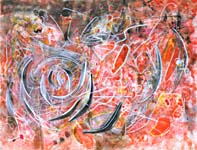Paul Simon’s “Graceland” was released on August 12, 1986. I was born a little less than two months later. In September of that year, as summer turned to autumn, my mother and father listened to the album on repeat. They still listened to vinyl (everyone still listened to vinyl), and the record spun around and around in their home in West Philadelphia: South African rhythms and Paul Simon’s hopeful brokenness swimming through the rooms of the house. I was their first child.
The album was recorded during the apartheid, and Simon used the South African vocal group Ladysmith Black Mambazo on many tracks, and the Everly Brothers and Linda Ronstadt on others. The music encompasses everything, and comes out feeling calming and hopeful. The record was exceptional—Simon’s incisive lyrics about the end of his marriage and the problems of contemporary city-dwelling transition seamlessly to Africa, where they’ve been sounding all along. Even if universality is an impossible thing to ask, “Graceland” spans half the globe in less than an hour, and it does so effortlessly and with a personal edge that compels the listener’s attention.
When I was in sixth grade, my mother purchased “Graceland” on cd, and I remember being home alone in the afternoon and dancing to the first song, “Boy in the Bubble” in my parents’ blue bedroom—“The bomb in the baby carriage was wired to the radio,” Simon sings, before bursting into the chorus, “These are the days of miracle and wonder, this is the long distance call”. It’s that kind of sentiment which makes “Graceland” work. At thirteen (at twelve?) these kinds of juxtapositions impressed me, the idea that music could be about more than one thing, that it could span place and time. My parents alleged that it was because I had heard the record so much in my last months in the womb, that I had come into consciousness to the sounds of Ladysmith Black Mambazo and Paul Simon whispering lullabyes to me. I think it was because the music was different than anything I had heard before.
The record deals with the disintegration of Simon’s marriage to Carrie Fischer, and seems to involve a rediscovery of self. The song “Graceland” itself articulates these ideas, imagining a trip to Memphis with Simon’s nine year old son. He sings, “There’s a girl in New York City, she calls herself the human trampoline. And sometimes when I’m falling flying tumbling in turmoil, I say, whoa, so this is what she means. She means we’re bouncing into Graceland. And she says losing love is like a window in your heart. Everybody sees it blown apart, everybody sees the wind blow.”
I’m going to do a series of posts on the record, and on covers of songs from it which have recently come to my attention. “Graceland” might be having a resurgence, or it might just be my own rediscovery. For exactly a year I didn’t have the record, and I missed it. I listened to it visiting my friend in Montreal, and looking out of her concrete block dorm room onto the slope of Mont Royal, about a year ago (the only time I listened to the record in from July to July), I didn’t feel any better but I managed to feel different. And this summer, I drove only listening to “Graceland” for a few weeks. The record starts, and the vocals swell and build. And we have reason to believe we all will be received.
skip to main |
skip to sidebar

